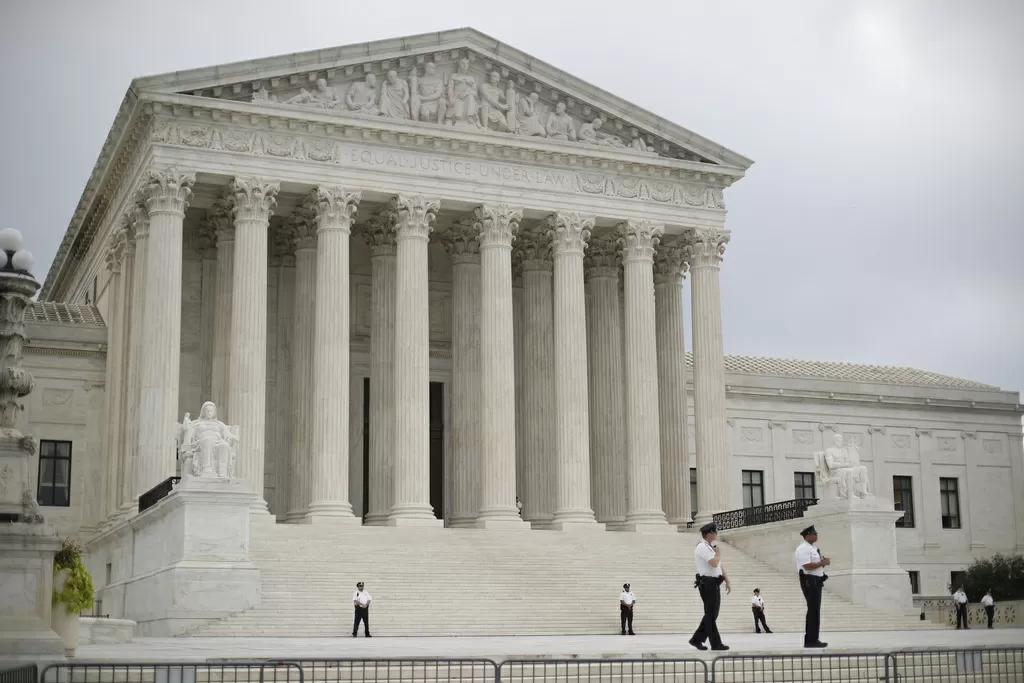The Supreme Court has made a decision that has sparked much debate and controversy in the tech world. On Monday, the court announced that it will not consider whether Meta, formerly known as Facebook, should be held liable for contributing to the radicalization of Dylann Roof, the self-proclaimed white nationalist mass shooter. This decision has once again brought to light the ongoing battle over Section 230 of the Communications Decency Act, which grants tech companies immunity from liability for content posted by their users.
This decision by the Supreme Court is a significant one, as it has far-reaching implications for the tech industry and its role in regulating online content. The case in question involves the families of the victims of the 2015 Charleston church shooting, who sued Meta for allowing Roof to use its platform to spread his hateful and extremist views. The families argued that Meta should be held accountable for not taking action to prevent Roof from using their platform to incite violence and hatred.
However, the Supreme Court’s decision not to consider this case means that the lower court’s ruling, which dismissed the lawsuit against Meta, will stand. This ruling was based on the argument that Section 230 of the Communications Decency Act shields tech companies from liability for the content posted by their users. This has been a contentious issue for years, with critics arguing that this immunity allows tech companies to shirk their responsibility to moderate and remove harmful content from their platforms.
The decision by the Supreme Court has been met with mixed reactions. Some see it as a victory for free speech and the protection of tech companies from frivolous lawsuits. Others, however, view it as a missed opportunity to hold tech companies accountable for their role in the spread of hate speech and extremist ideologies.
The families of the victims of the Charleston shooting have expressed disappointment and frustration with the Supreme Court’s decision. They believe that Meta should be held responsible for allowing Roof to use their platform to spread his hateful views, which ultimately led to the tragic loss of their loved ones. They argue that tech companies have a moral obligation to take action against hate speech and extremist content on their platforms, and that Section 230 should not be used as a shield to avoid this responsibility.
On the other hand, tech companies and their supporters have welcomed the Supreme Court’s decision. They argue that holding tech companies liable for the content posted by their users would stifle free speech and hinder innovation. They also point out that tech companies already have policies and systems in place to remove harmful content, and that it is not their responsibility to police the internet.
This decision by the Supreme Court highlights the ongoing debate over the role of tech companies in regulating online content. While some argue that they have a responsibility to moderate and remove harmful content, others believe that this would infringe on free speech and hinder the growth of the tech industry. This issue is not a new one, and it is likely that we will continue to see similar cases in the future.
In the meantime, it is important for tech companies to take a proactive approach in addressing hate speech and extremist content on their platforms. While they may have immunity from liability, they should not use this as an excuse to turn a blind eye to the harmful effects of such content. It is their responsibility to create a safe and inclusive online environment for all users, and they must take action to remove any content that goes against this goal.
In conclusion, the Supreme Court’s decision not to consider the case against Meta has once again brought the issue of Section 230 and tech companies’ role in regulating online content to the forefront. While this decision may be seen as a victory for tech companies, it also highlights the need for a deeper conversation and potential reform of Section 230. In the meantime, it is crucial for tech companies to take responsibility for the content on their platforms and work towards creating a safer and more inclusive online space for all.



